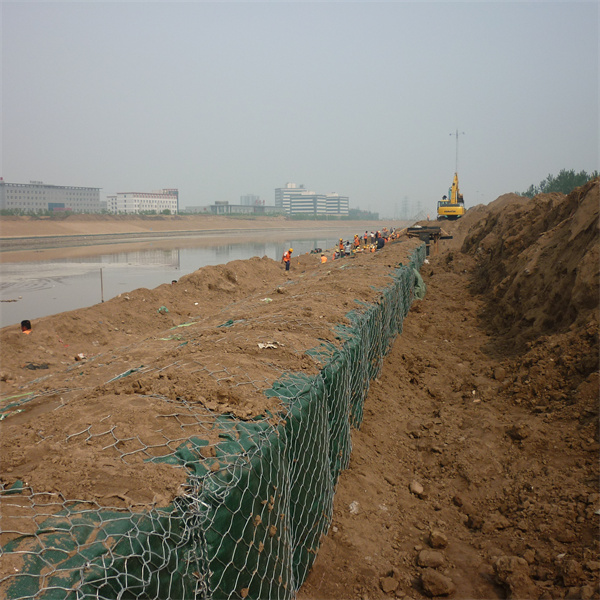ಆಗಸ್ಟ್ . 19, 2024 16:16 Back to list
Durable and Stylish Gabion Walls for Modern Outdoor Spaces
The Advantages of High-Quality Gabion Walls
Gabion walls have become a popular choice in modern landscaping and construction due to their durability, aesthetic appeal, and environmental benefits. Constructed from wire mesh baskets filled with stone, or other materials, gabion walls serve a variety of functions including retaining walls, erosion control, and decorative features in gardens and parks. This article will explore the advantages of high-quality gabion walls, highlighting their effectiveness and versatility.
Durability and Longevity
One of the primary benefits of high-quality gabion walls is their exceptional durability. Made from robust wire mesh, these structures are designed to withstand harsh weather conditions, including extreme heat, heavy rainfall, and strong winds. The wire used in premium gabion walls is often galvanized or coated to prevent corrosion, ensuring that the wall remains intact for many years. Unlike traditional brick or concrete walls, which can crack and degrade over time, gabion walls are flexible and can adapt to shifting soil without compromising their integrity.
Aesthetic Appeal
Gabion walls are not only functional; they can also be visually appealing. With their natural stone fill, they blend seamlessly into a variety of landscapes, from rustic countryside settings to modern urban environments. Homeowners and landscape architects can choose from a range of stone types, colors, and sizes to create a unique look that complements existing structures or natural features. Furthermore, the open structure of gabion walls allows for plant growth, making them perfect for creating living walls that enhance biodiversity and promote flourishing ecosystems.
Environmental Benefits
High-quality gabion walls also offer significant environmental advantages. They are often used in erosion control, helping to stabilize slopes and prevent soil runoff. The permeable nature of gabions allows water to flow freely, reducing the risk of flooding and minimizing water accumulation. This feature is particularly beneficial in areas with heavy rainfall, where traditional impermeable walls might exacerbate drainage issues.
high quality gabion duvar

Additionally, using locally sourced stone for gabion fill further enhances their eco-friendliness. It reduces transportation costs and carbon emissions associated with building materials, making gabions a sustainable option for construction and landscaping projects.
Cost-Effectiveness
From a financial perspective, high-quality gabion walls are often more cost-effective compared to traditional wall structures. The materials used for gabions are generally less expensive, and the installation process is straightforward, often requiring minimal heavy equipment. This means labor costs can be reduced significantly, making gabion walls an economical choice for both residential and commercial developments.
Versatility
Gabion walls are incredibly versatile and can be used in a variety of applications. Whether used for retaining walls, garden borders, sound barriers, or decorative elements, their adaptability makes them suitable for numerous projects. They can be stacked or configured in various shapes and sizes, tailored to meet specific design needs and site conditions.
Conclusion
In conclusion, high-quality gabion walls are an excellent choice for those seeking durable, aesthetically pleasing, and environmentally friendly construction solutions. Their longevity, visual appeal, and cost-effectiveness, coupled with their practical applications in erosion control and landscape enhancement, make them a popular choice for architects and homeowners alike. By choosing gabion walls for your next project, you can achieve a unique, functional, and sustainable outcome that harmonizes beautifully with the surrounding environment.
-
HESCO Gabion Baskets for Coastal Erosion Prevention
NewsAug.22,2025
-
Longevity and Durability of River Rock Gabion Walls
NewsAug.22,2025
-
How to Integrate Gabion 3D Walls in Urban Planning
NewsAug.22,2025
-
Reno Mattress Gabion Applications in Civil Engineering
NewsAug.22,2025
-
How to Install Wire Mesh for Gabion Baskets Properly
NewsAug.22,2025
-
Best Materials for Filling a Chain Link Gabion
NewsAug.22,2025
-
Wire Mesh Thickness Impact on Gabion Wall Load Bearing
NewsAug.12,2025






